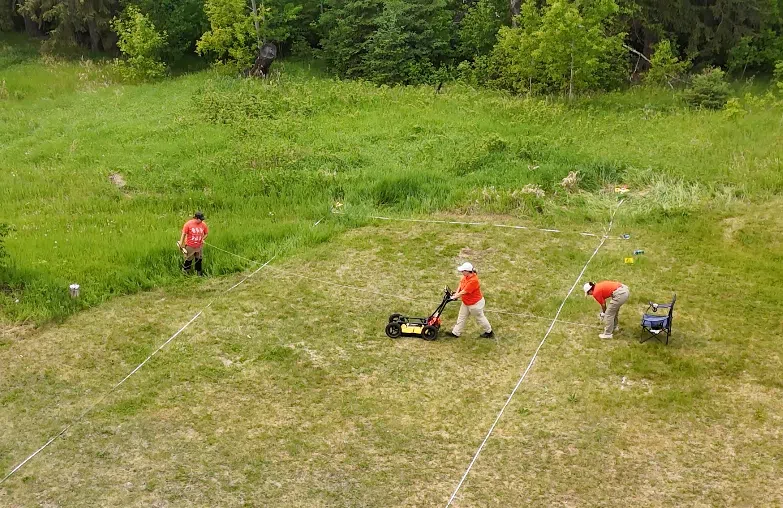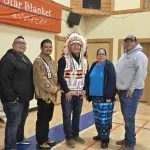
English River First Nation Uncovers 60 More Sites of Concern at Former Residential School
Trigger Warning: Residential Schools
English River First Nation is on a long journey to uncover the truth, despite how troubling it may be.
The Returning Home Society (RHS), a special project from English River First Nation (ERFN) conducting research and investigating the former Beauval Residential School, situated on ERFN land, has found at least 60 new areas of concern at the former residential school.
The areas of concern are not yet confirmed to be graves. The group began its search in 2021 after testimony from residential school survivors about children not returning home. Initial ground penetrating radar found 79 possible sites, and added a possible 93 more in during further searches in 2023.
“We need to know the truth before reconciliation. How do we know what we’re reconciling if we don’t know the truth?” said Dawn McIntyre, RHS Project Manager and member of Canoe Lake Cree First Nation.
“There’s a general acceptance in our community, where we believe the oral history and the survivor statements, but it’s always been kept amongst ourselves. So bringing this out into the open is very important,” she said.
The newest results were found from data taken last summer, and analyzed over the winter. The process is very time consuming, said McIntyre, with RHS only have completed about 10 to 15 percent of the total ground around the Beauval Residential School.
The Beauval Indian Residential School operated from 1906 to 1996, and was ran by the Roman Catholic Church under the administration of the Missionary Oblates of Mary Immaculate.
“This is going to be a lifetime of work,” said McIntyre.
“There is the potential to be more (possible gravesites). We are looking at everything, whether it’s based on stories from survivors, or the entire grounds used for the school operation.”
McIntyre said dogs specially trained to detect human remains as old as 100 years, as well as other non-invasive methods, will be used to help determine whether the areas of concern contain human remains.
Potential impacts from the unearthed news to members of the community can be met with various supports, said McIntyre, including mental health support workers from ERFN and Meadow Lake Tribal Council. They are also hoping to establish more wellness programming to help community members and staff cope and heal with intergenerational trauma.

“Pretty much all of us at RHS are descendants of survivors, all of our parents were connected to the Beauval Residential School, so there’s definitely a significant impact on ourselves when we learn the history of our families and what occurred in the past,” said McIntyre.
“The community is grateful for the work that we’re doing, but at the same time, there’s a lot of grief and sorrow. It brings a lot more questions,” she said.
Funding for the RHS currently comes from Crown-Indigenous Relations and Northern Affairs Canada (CIRNAC), but McIntyre said the rate of the developments over the past few years indicate that they’ll need more resources and a long-term partner committed to supporting the work.
“I think this is a real turning point, and an opportunity, because we’re looking at the past, our history, and finding truth,” said McIntyre. “Now that we know the truth, where do we go from here, how do we heal and move forward?”

